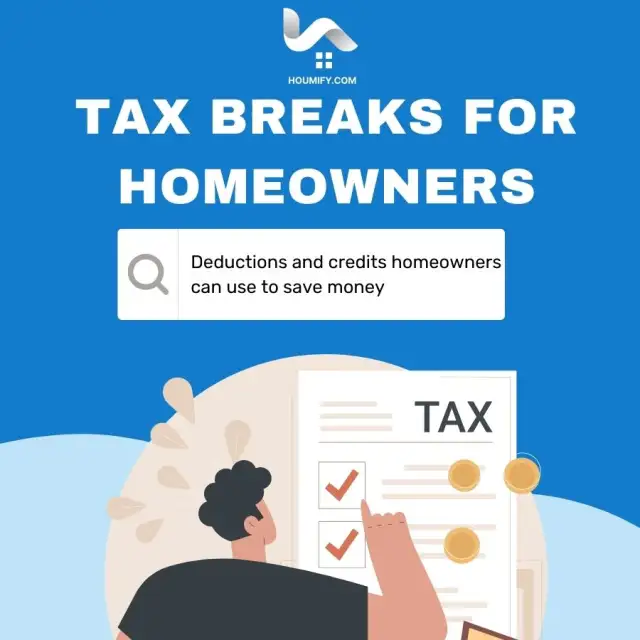The Ultimate Guide to the First-Time Homebuyers Tax Credit and Other Financial Benefits
Buying a home for the first time is a significant milestone, often accompanied by a blend of excitement and anxiety. One of the biggest advantages of homeownership is the potential for substantial tax savings through various credits and deductions. This guide will help you navigate the First-Time Homebuyers Tax Credit and other essential tax benefits available to you as a new homeowner.
Understanding the First-Time Homebuyers Tax Credit
The First-Time Homebuyers Tax Credit was introduced during the 2008 financial crisis to make homeownership more affordable for Americans. It provided a significant tax credit for those buying their first home, directly reducing the amount of tax owed. Although this specific credit no longer exists, new legislation has been proposed to reintroduce a similar benefit.

What Is a Homebuyers Tax Credit?
A homebuyers tax credit is an amount you can subtract directly from your taxes owed. It’s designed to encourage and support homeownership by reducing the financial burden of buying a home.
Types of Homebuyers Tax Credits
There are three main types of tax credits available:
- Nonrefundable Tax Credits: These reduce your tax liability to zero but not beyond.
- Refundable Tax Credits: These can reduce your tax bill below zero, resulting in a refund.
- Partially Refundable Tax Credits: These offer a mix of both refundable and nonrefundable benefits.
Tax Credits vs. Tax Deductions
Tax credits directly reduce your tax bill, whereas tax deductions lower your taxable income. For instance, a $1,000 tax credit reduces your tax bill by $1,000, while a $1,000 deduction reduces your taxable income, potentially lowering your tax by a percentage of that amount.
Historical Overview of First-Time Homebuyer Tax Credits
The 2008 First-Time Homebuyer Tax Credit
Enacted in response to the 2008 financial crisis, the Housing and Economic Recovery Act allowed new homebuyers to receive a tax credit of up to $7,500. In 2009, the credit amount increased to $8,000. This initiative aimed to stimulate the housing market by providing financial relief to new buyers. Unfortunately, this credit ended in 2010, but it remains a significant reference point for current legislative efforts.
The First-Time Homebuyer Act of 2021
Proposed in April 2021, this legislation aimed to reintroduce a refundable tax credit of up to $15,000 for first-time homebuyers. The bill, intended to foster housing stability and generational wealth-building, particularly among historically marginalized communities, is still awaiting approval as of December 2023.
2024 Mortgage Relief Credit Proposal
In his 2024 State of the Union address, President Biden proposed a 'mortgage relief credit' to offer tax credits to first-time homebuyers and those selling starter homes. This proposal highlights ongoing efforts to provide financial incentives for new homebuyers.
Other Financial Assistance for First-Time Homebuyers
Even without the first-time homebuyer tax credit, various other programs can help reduce the costs associated with buying a home:
Mortgage Credit Certificates (MCCs):These provide a tax credit to low and moderate-income homebuyers. Typically available to first-time buyers, MCCs can help offset mortgage interest costs.
Government-Backed Loans:Programs like FHA, VA, and USDA loans offer favorable terms, including low down payments and flexible credit requirements, making homeownership more accessible.
State and Local Programs:Many states and municipalities offer grants, loans, and other forms of assistance to first-time homebuyers. Check your local government websites for details.
IRA Withdrawals:First-time homebuyers can withdraw up to $10,000 from their IRA without penalty to use as a down payment, although taxes may still apply.

Energy-Efficiency Credits:Homeowners who make energy-saving improvements may be eligible for tax credits, further reducing their overall costs.
Key Tax Deductions for Homeowners:While the first-time homebuyer tax credit is not currently available, several deductions can help homeowners reduce their tax burden:
Mortgage Interest Deduction:Homeowners can deduct the interest paid on mortgages up to $750,000. This deduction can be significant, especially in the early years of a mortgage when interest payments are highest.
Property Taxes:You can deduct up to $10,000 of your property taxes and either state income taxes or sales taxes.
Mortgage Points:If you paid points to lower your mortgage interest rate, these points can be deducted on your taxes, typically one point equals 1% of your loan amount.
Private Mortgage Insurance (PMI):For those who put down less than 20% on their home, PMI payments can be deducted, subject to income limits.
Home Sale Exclusion:If you sell your home and meet certain conditions, you can exclude up to $250,000 ($500,000 for married couples) of the profit from your income, provided you’ve lived in the home for at least two of the last five years.
First-Time Homebuyer Tax Credit Requirements
If new legislation passes, certain requirements will apply for eligibility:
- First-Time Buyer:Must not have owned a home or co-signed a mortgage in the past three years.
- Income Limits:Must have an income no more than 160% above the median income for the area.
- Age Requirement:Must be at least 18 years old or married to someone who is.
- Home Purchase:Cannot buy a home from a relative.
Additional Financial Benefits
Retirement Funds for Down Payment:Up to $10,000 can be withdrawn from IRAs without penalty for a down payment.
Energy-Efficiency Upgrades:Tax credits for making energy-efficient home improvements.
Medically Necessary Home Improvements:Deductions for home improvements required for medical reasons.
Rental Expense Deductions:If part of your home is rented out, you can deduct related expenses.
Debt Forgiveness for Foreclosures:Potential tax relief for forgiven debt in foreclosure or short sale situations.
Itemizing Deductions vs. Standard Deduction
Homeowners should decide whether to itemize deductions or take the standard deduction. For 2024, the standard deduction amounts are $12,950 for single filers, $25,900 for married couples filing jointly, and $19,400 for heads of household. Itemizing makes sense if your deductible expenses exceed these amounts.
News Section: Recent Developments in Homebuyer Tax Credits
The first-time homebuyer tax credit has seen many changes and proposals over the years. Recently, President Biden proposed the 'mortgage relief credit' during his 2024 State of the Union address. This new initiative aims to provide up to $5,000 annually for two years to eligible homebuyers, effectively reducing their mortgage rates and making homeownership more affordable. Additionally, there is a one-year tax credit of up to $10,000 for those selling starter homes to buyers who will occupy the home.
Barbara Corcoran, a prominent real estate mogul, remarked, "Incentives like the mortgage relief credit are crucial for making homeownership accessible to more Americans. By providing financial support, we can help build stronger, more stable communities."
The Impact of Legislative Changes
Legislation such as the First-Time Homebuyer Act of 2021 and the proposed mortgage relief credit reflects ongoing efforts to support homeownership. These initiatives are designed to create pathways for low- and middle-income families to achieve the dream of owning a home. While these proposals face challenges in Congress, their potential impact on housing stability and wealth-building for marginalized communities remains significant.
Comprehensive Financial Strategies for First-Time Homebuyers
Navigating Government Programs
Utilizing government-backed loans like FHA, VA, and USDA loans can significantly lower the barriers to homeownership. These programs offer low down payments and flexible credit requirements, making them accessible to a broader range of buyers.
Exploring State and Local Assistance
Many states and local governments provide grants, loans, and other assistance programs tailored for first-time homebuyers. Researching these opportunities can uncover additional resources to make homeownership more affordable.
Leveraging Retirement Funds
First-time homebuyers can withdraw up to $10,000 from their IRAs without penalty for a down payment. While taxes may still apply, this option can provide crucial financial support for those lacking liquid assets.
Maximizing Energy-Efficiency Credits
Homeowners who invest in energy-efficient improvements can benefit from tax credits. These incentives not only reduce tax liabilities but also lower long-term energy costs, contributing to overall savings.
Understanding Tax Deductions and Their Benefits
Mortgage Interest Deduction
Deducting mortgage interest can result in substantial tax savings, especially during the early years of the mortgage when interest payments are highest.
Property Tax Deductions
Deducting property taxes up to $10,000 can significantly reduce taxable income, offering further financial relief.
Deducting Mortgage Points
If you paid points to secure a lower mortgage interest rate, these can be deducted, providing immediate tax benefits.
Private Mortgage Insurance (PMI) Deductions
For those who put down less than 20%, deducting PMI payments can reduce overall tax liabilities, subject to income limits.
Home Sale Exclusions
Excluding up to $250,000 ($500,000 for married couples) of profit from the sale of a home under certain conditions can prevent significant capital gains taxes.
Future Outlook and Legislative Developments
The landscape of tax credits and deductions for first-time homebuyers continues to evolve. Proposed legislation like the First-Time Homebuyer Act of 2021 and the 2024 mortgage relief credit reflect ongoing efforts to make homeownership more accessible. Staying informed about these developments is crucial for potential homebuyers looking to maximize their financial benefits.
The Most Comprehensive Tips for All Aspects of First-Time Homebuyers Tax Credit
Buying a home is a complex process, but understanding the financial benefits available can make it more manageable.
Q. Why is the First-Time Homebuyers Tax Credit important?
A.The credit helps reduce the financial burden of buying a first home, making homeownership more accessible.
Q. When should you consider applying for first-time homebuyer programs?
A.As soon as you start planning to buy a home, research and apply for applicable programs to maximize benefits.
Q. Where can you find more information about state and local assistance?
A.Local government websites and housing authority offices are good starting points for information on state and local assistance programs.
Q. What other financial benefits can first-time homebuyers access?
A.Besides tax credits, first-time homebuyers can access deductions for mortgage interest, property taxes, and PMI, as well as benefits for energy-efficient home improvements and retirement fund withdrawals.
Q. Who qualifies as a first-time homebuyer?
A.Generally, anyone who hasn't owned a home in the past three years qualifies as a first-time homebuyer.
Q. How can Realiff.com help in the home buying process?
A.Realiff.com provides AI-driven technology and diverse listings to help buyers and sellers navigate the real estate landscape, offering valuable insights and tools.
Conclusion
Navigating the financial landscape of buying your first home can be challenging, but understanding the available tax credits, deductions, and assistance programs can make the process more affordable and manageable. While the First-Time Homebuyers Tax Credit from 2008 no longer exists, various proposals and existing programs continue to support new homeowners. From mortgage interest deductions to state and local assistance programs, first-time buyers have numerous opportunities to reduce their financial burden. Staying informed about legislative changes and exploring all available resources can help you make the most of these benefits, ensuring a smoother path to homeownership.





